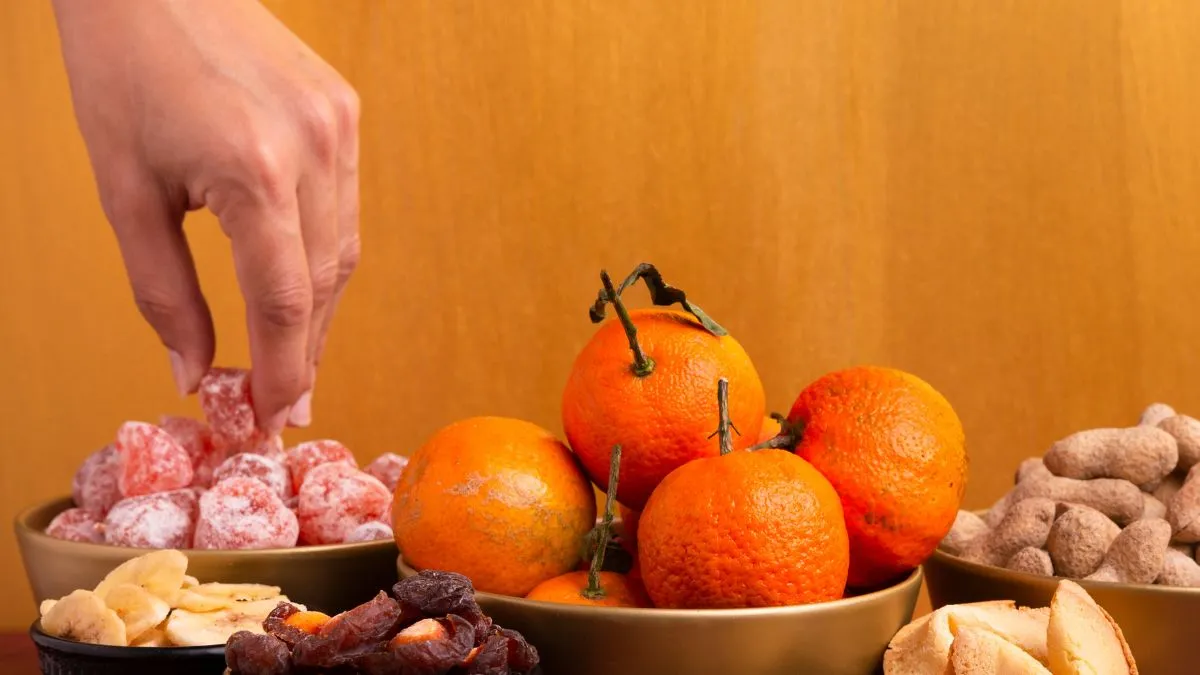
Navaratri, a nine-day festival, is one of the most cherished occasions in India. Navratri is a period dedicated to devotion, prayer, cultural events, and celebrations. During this period, people often fast to honour our tradition. And for many, this is a period for family meetups and sumptuous food. When it comes to people with diabetes, this time may be quite challenging. But it is manageable with thoughtful planning and mindful practices. People with diabetes can also enjoy the celebrations without compromising on their health.
Table of Content:-
7 Navratri festival tips for diabetics
If you know the right approach, it becomes easy to follow the process with anticipated benefits. Here are some tips by Dr Ranjit Unnikrishnan, Vice Chairman- Dr Mohan’s Diabetes Specialities, that you can exercise for blood sugar control during navratri fasting.
1. Prepare Before You Fast
If you are planning to fast for the whole 9 days, you must consult your doctor so that you remain safe. When you are using insulin or certain tablets to control diabetes, fasting may produce low blood sugar levels. Preparation is the first step to safe fasting.
“Pre-fast planning may involve adjusting medication doses, deciding meal patterns, or choosing the type of foods that will keep you fuller for longer. Start your day with wholesome foods like whole grain cereals, millets, pulses, curd and nuts. This combination gives you enough protein and carbs that last for a longer time,” suggests Dr Ranjit Unnikrishnan.
Also Read: Navratri 2025: Expert Lists Fasting Foods To Eat And Avoid
2. Choose Smarter Festive Foods
During Navratri, we are served delicious sweets and snacks. Most savouries are made of sugars and fats, making them unsuitable for people with diabetes. Instead, opt for lighter and healthier alternatives such as:
- Roasted Chana and steamed foods are safe to eat.
- Eat sweets with fruits as a replacement for sugar.
- Whole-grain rotis paired with curd or vegetable-based preparations can help provide sustained energy without sudden spikes in blood sugar.
- When you add fibre-rich vegetables along with carbs, blood sugars do not spike high.
3. Practise Portion Control
Dr Ranjit Unnikrishnan emphasises portion control. “Overeating causes high blood sugars. When you have a large meal after long hours of fasting, blood sugars often fluctuate. Spacing out the meal timing with small, frequent meals is very important. Pairing grains with lentils, vegetables or curd ensures that your body receives a balanced mix of nutrients and slows down the release of sugar into the bloodstream,” he explains.
Also Read: Navratri 2025 Diet Plan: A 9-Day Diet Chart for Healthier Fasting
4. Stay Hydrated the Right Way
People often overlook water intake during festivals. Dehydration negatively affects the blood sugar. Dr Ranjit Unnikrishnan suggests the following:
- You must drink a lot of water, especially when you are planning to fast on these days.
- Healthy beverages like buttermilk, soup and lemon juice can keep you hydrated and provide essential electrolytes as well.
- Try to avoid packaged drinks because of their hidden sugars.
- Restrict frequent intake of coffee and tea, as they can also cause dehydration.
5. Be Mindful of Sweets
Sweets have a central role during festivals. Navaratri is no exception. You need not completely avoid sweets, but you can have small portions mindfully.
6. Monitor Blood Sugar Levels
“Fasting and feasting cause fluctuations in the blood sugars. You need to monitor and keep track of your blood sugars. If you have abnormally high or low sugar levels, you must be prepared to break the fast or consult your doctor as the case may be,” suggests Dr Ranjit Unnikrishnan.
7. Stay Active but Avoid Overexertion
Festivals, especially Navratri, involve a lot of work for women. When they combine fasting with a heavy workload, they get exhausted. Overexertion should be avoided when you are fasting.
Final Word
When sugar levels go abnormally high or low, your body sends signals. Listen to your body carefully and take appropriate action as per your doctor’s advice.
Navratri beautifully blends devotion, culture and celebration. For people with diabetes, it also calls for responsibility and self-care. By preparing meals in advance, choosing healthier alternatives, staying hydrated, practising portion control, monitoring sugar levels and listening to your body, you can enjoy the festival without compromising your health. A little mindfulness ensures that your Navratri remains both spiritually fulfilling and medically safe.
Also watch this video
How we keep this article up to date:
We work with experts and keep a close eye on the latest in health and wellness. Whenever there is a new research or helpful information, we update our articles with accurate and useful advice.
Current Version
Sep 22, 2025 15:35 IST
Published By : Chanchal Sengar